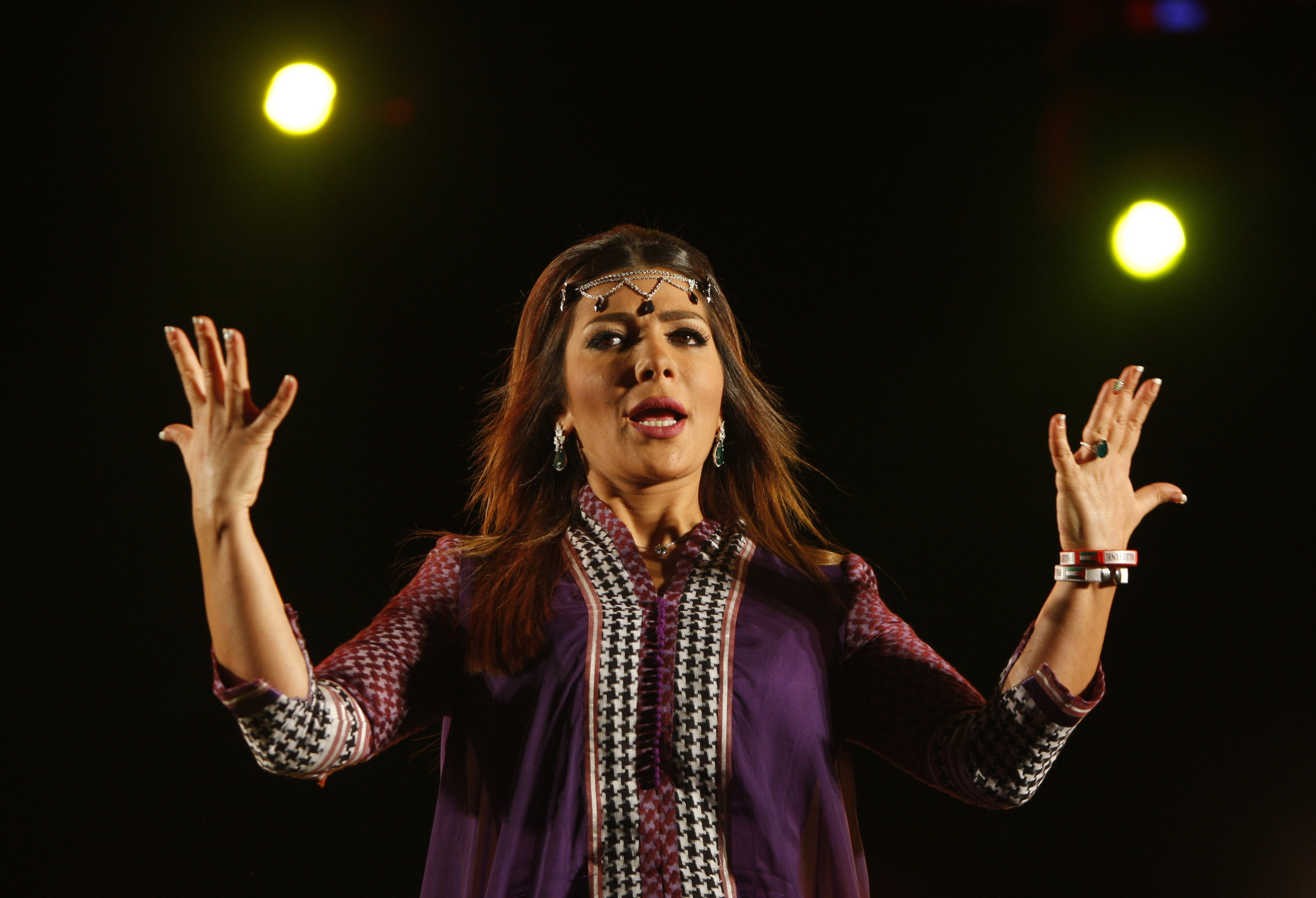Ever since the start of the Syrian tragedy, Syrian singer Asala Nasri has been declaring her opposition to Bashar Al-Assad’s regime and supporting the popular upraising.
Because of her views, she has suffered criticism from her movie star colleagues in Egypt, including actress Raghda, whose poetic talent was recently revealed thanks to the current crisis in her country, and singer Mayada el-Hinnawi.
Nasri was not safe from criticism even from her kinsfolk, but she stuck with her opinions—until her stance changed following the news on the anticipated strike the US, France and some Arab states are expected to carry out against Assad’s defenses and troops.
This is natural, given the prevalent Egyptian mood towards the strike.
There is an enormous disparity between the views of the Syrian people themselves and the Gulf nations on the one hand, and that of the Egyptian people on the other.
Nasri saw the issue was more complicated than she had originally thought, and she expressed her confusion on her Twitter account, saying, “I cannot imagine our country suffering any further. To hell with politics.”
This damnation of politics only shows the huge gap between good faith and noble goals and the social complexities and heritages that are more difficult to taken into consideration. Politics, after all, is the mirror that reflects all contradictions, struggles and suppressed interests, and is the yardstick by which we can examine the effectiveness of discourse.
Artists have a unique value during this time of intense chaos in the Arab world, for artists are part of the soft power that each party tries to exploit the support and love of its audiences to its advantage. Bashar has his own artists, and so does the opposition. In Lebanon, Iraq, Egypt and elsewhere, there are artists and even football stars who take one stance or another. One example is the renowned footballer Mohamed Aboutrika, who is suffering greatly these days because he is accused of being a Brotherhood sympathizer. As the proverb goes, when a man is falling downhill, everybody gives him a kick.
Is an artist or a sports star entitled to speak of politics, or even to take sides?
And if they do, will they run the risk of dividing their audience? Are artists fully aware of the complexities of political struggles? Or are only small part of them able to fully gasp the situation? Should an artist take up a political stance, or should he be dedicated only to his art?
These are difficult questions, especially for artists.
